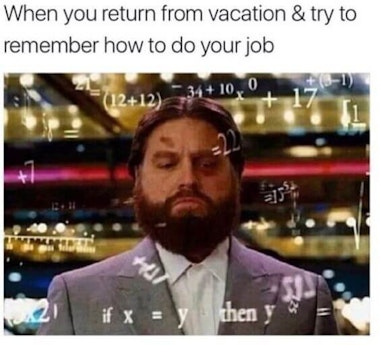Gen Z Wants Flexible Jobs, But Do You Even Know What That Means?

What Flexibility at Work Actually Looks Like (And How to Get It)
Ask any Gen Z jobseeker what they’re looking for, and one thing comes up every time:
“I want flexibility.”
But ask what that actually means, and you’ll get… vibes.
“Like, not 9-to-5, but not jobless either?”
“Something remote-ish?”
“Something that lets me travel but also pays me?”
Here’s the truth: flexibility means different things for different people. And if you don’t know what it looks like for you, you’re going to keep landing in roles that feel… off.
So let’s break down what flexibility actually looks like — and how to find the kind that fits you.
First: What Are You Actually Trying to Escape?
Before you slap “flexible” on your dream job checklist, ask: what part of work feels rigid to you?
-
The hours? (You don’t mind working, but hate being chained to 10–7.)
-
The location? (Your brain works better on the move.)
-
The tasks? (You want variety, not the same 3 things every day.)
-
The control? (You want more say in how you work.)
Not every flexible job gives you all of that. Knowing what you need to breathe is key.
Types of Flexibility That Actually Exist
Here’s what to look for — and what the HR lingo actually means:
Flexible Hours: You work a set number of hours, but choose when. Perfect for night owls, students, or people who peak at 3am.
Remote First: You’re not just allowed to work from home — it’s the default. Bonus if the team actually respects your timezone.
Outcome-Based Roles: Your boss cares about results, not how many hours your Slack status is green. More freedom, more accountability.
Portfolio Gigs: Freelance, consulting, or contract work where you own your schedule — but also have to find your next project.
Job Variety: Flexibility in role or skills — ideal if you get bored doing one thing all day. Think startups, product teams, or creative roles.
Hybrid That’s Actually Hybrid: Not “3 days in office but surprise! You’re here 5 anyway.” Real hybrid lets you choose your rhythm.
“But How Do I Know What I’ll Thrive In?”
That’s where Mentoria comes in.
Sign up for our career assessment to figure out your work style, energy patterns, and ideal environment. Do you need structure or freedom? Fast pace or slow burn?
Then talk to experts across industries — ones who’ve built careers in flexible, hybrid, or freelance formats. Learn how they found (or created) roles that work for them.
Finally, build your plan. Our mentors can help you:
-
Identify industries that offer real flexibility (not just the buzzword)
-
Craft resumes that highlight your independence, initiative, and versatility
-
Avoid companies that claim “work-life balance” but mean “work all the time”
Because “I want a flexible job” shouldn’t feel like asking for a unicorn.
Final Thought: Flexibility Isn’t Lazy — It’s a Career Strategy
You’re not wrong for wanting a life that fits around your work — not the other way around.
But “flexibility” without clarity is just job-hopping in disguise.
Get clear. Get guided. Get intentional about the freedom you’re chasing.
Mentoria is here for all of that.








